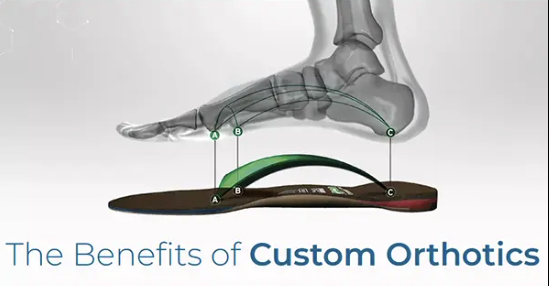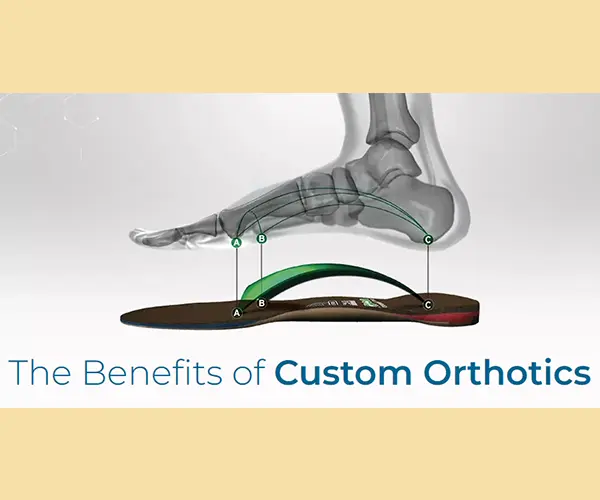Custom Orthotics
What are Custom foot Orthotics?
Custom foot orthotics are like super comfy, personalized shoe inserts. They’re custom-made to fit your unique feet and how you walk. These special insoles can help ease common foot problems such as arch pain, plantar fasciitis, and flat feet. Dr. Ryan M. Sherick at the Apex Foot & Ankle Institute in Thousand Oaks, California who will measure your feet to create these inserts specifically just for you utilizing the most state of the art custom orthotic scanner.
Unlike the one-size-fits-all insoles you find at the store, custom orthotics provide tailored support, making your daily activities much more comfortable and helping you say goodbye to foot discomfort.
Contact Dr. Ryan M. Sherick the best custom orthotic doctor in Thousand Oaks, California today!

What conditions do Custom Foot orthotics generally help?
Orthotics can be beneficial for a range of conditions and foot-related problems, including:
How are AFAI’s custom Foot orthotics made?
Apex Foot and Ankle Institute (AFAI) create custom orthotics, your personalized foot support, and process. Here’s how it works:
AFAI’s custom orthotics are tailored to your unique needs, making them a user-friendly solution for a variety of foot conditions. By combining advanced technology, specialized training, and personalized care, AFAI and Dr. Ryan M. Sherick ensure that you receive orthotics that are not only effective but also comfortable and easy to incorporate into your daily life.
Custom Charcot boots for diabetic foot conditions
Custom Charcot boots are specially designed footwear for individuals with diabetic foot conditions, and they play a crucial role in ensuring comfort, support, and protection. These unique boots are tailored to accommodate the specific needs of those with Charcot foot, a condition where the bones in the foot weaken, leading to deformities and potential ulcers. Charcot boots are constructed with extra room, soft materials, and custom insoles to provide a secure and comfortable fit, reducing the risk of friction and pressure points.

Their design also supports proper weight distribution, reducing stress on the foot’s fragile areas. By promoting stability and cushioning, these boots help prevent ulcers and other complications that can arise from diabetic neuropathy and Charcot foot, ultimately improving the quality of life for individuals with diabetes. It’s important to consult a healthcare professional to determine if custom Charcot boots are right for your specific needs, as they can make a significant difference in managing diabetic foot conditions and preventing potential complications.
Tips for Getting the Most Out of Your Orthotics
Orthotics is customized shoe inserts designed to alleviate foot discomfort and improve your overall mobility. To ensure you get the maximum benefit from your orthotics, consider these essential tips:
In conclusion, orthotics can be a valuable tool in addressing various foot-related issues. By following these tips and maintaining a close relationship with your podiatrist, you can make the most of your orthotics and enjoy improved foot comfort and mobility. Remember that a proactive approach to your foot health can lead to long-lasting benefits and an active, pain-free lifestyle.

Request An Appointment
Need Help With Your Foot And Ankle?
